Aggressively Fighting for the Best Possible Outcome
TAMPA JUVENILE DEFENSE ATTORNEY
Call Today for a Free Consultation
As a parent, one of your primary goals is ensuring your child’s future looks bright, but sometimes it can be hard to keep them on the straight and narrow. If a child is caught underage drinking, driving recklessly, or even winds up in the wrong crowd, they could face criminal charges through the Florida juvenile justice system. Sometimes, if they commit a more serious crime, they may even be tried in adult court, despite their age.
If your child has been accused of a crime, you’ll want to contact an experienced juvenile defense attorney to represent them in court. The Tampa criminal defense attorneys at Buda Law are prepared to provide your child with the best defense possible to receive a favorable outcome for their pending charges. Call us at (813) 322-2832 to schedule a free case evaluation with a member of our team today.

Is your child facing criminal charges? Tampa juvenile crimes attorney Andrew Buda can help. To schedule your initial FREE consultation, dial 813-322-2832.
Common Types of Juvenile Crimes
Just like adult crimes, juvenile crimes can come in many shapes and forms. They can range from misdemeanor offenses to felony charges and may be tried in juvenile court or tried as an adult, depending on the circumstances. Some of the most common types of juvenile crimes include:
- Drug crimes / Alcohol crimes
- Possession of drugs
- Possession of drugs or alcohol on a school campus
- Possession of alcohol while under the age of 21 (underage drinking)
- Disorderly conduct
- DUIs/Drug DUIs
- Property crimes
- Violent crimes
- Domestic violence
- Assault
- Aggravated assault
- Battery
- Aggravated battery
- Armed robbery
- Traffic violations
- Driving without a license
- Driving while under the influence
- Reckless driving
- Racing
- Burglary
- Armed burglary
- Burglary of an unoccupied structure
- Burglary of an occupied structure
- Theft crimes
- Petit theft
- Shoplifting
- Grand theft
- Felony theft
- Robbery
- Weapon offenses
- Possession of a firearm
- Sex crimes
- Sexting
- Obscenity
- Indecent exposure
- Sexual battery
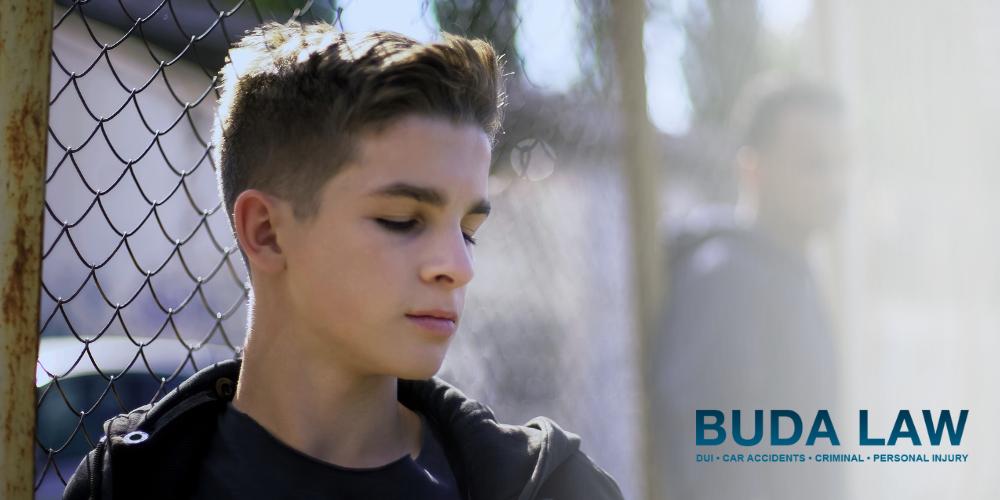
Juvenile Crime Terms
In addition to the age difference of the offenders, juvenile criminal cases differ from adult criminal cases in many other ways. One of the main ways they differ is the verbiage used to describe the juvenile justice process. The two main terms that differ from traditional court proceedings are the terms adjudication and disposition.
- Adjudication is the process of making a judicial decision. A juvenile is considered “adjudicated” rather than “convicted” or “guilty.”
- Disposition is any court-ordered action resulting from a juvenile case. Instead of a juvenile being “sentenced,” they receive a “disposition.”
Florida Juvenile Detention Hearing & Court Process
According to the Florida Department of Juvenile Justice, the juvenile justice process involves several steps from the time the crime occurred to the time the court renders disposition. This can include the arrest and intake process, the detention and court hearings, and the disposition following the trial’s outcome.
During this process, juveniles will most likely be questioned by police. Under the U.S. Constitution, anyone accused of a crime has the right to obtain legal counsel. A juvenile may tell police their name and address, but they should not answer any other questions without a juvenile criminal defense attorney present.
If your child has been arrested for a crime, contact Buda Law online or call us at (813) 322-2832 today. We offer a free initial consultation for all cases and can help provide you and your child with expert legal advice regarding juvenile criminal charges.
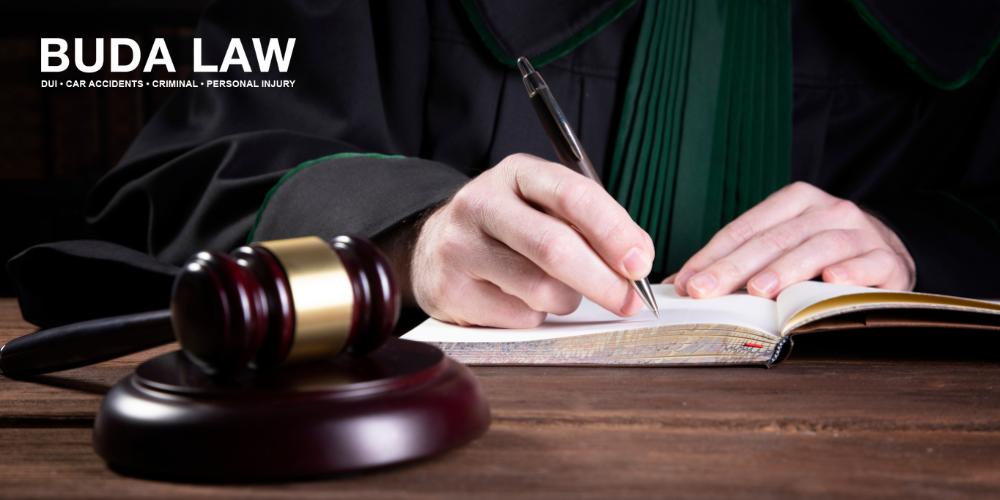
Arrest and Intake
If a child breaks the law, they may be arrested on criminal charges and taken to a Juvenile Assessment Center. From there, they will be fingerprinted and asked for their name and address. The assessment center will evaluate the juvenile’s risk to themselves and those around them using a detention risk assessment instrument. If the assessment shows the child should be committed to a juvenile detention center, they will be sent from the assessment center to the detention center.
Detention Hearing
Regardless of whether or not the juvenile is committed to a detention center, they will be required to appear in court within 24 hours of their arrest for their pre-trial detention hearing. If the juvenile cannot obtain legal representation before their hearing, the state will provide them with a public defender.
The detention hearing allows a judge to evaluate the arresting officer’s statements, the Juvenile Assessment Center’s findings, and the child’s criminal history. The judge will then decide whether the juvenile should be placed under secure detention, placed on house arrest, or surrendered to their parents with or without restrictions.
Pre-Trial Proceedings
From there, the State Attorney’s office will decide whether to handle the case formally in court or informally outside of court. If the case proceeds informally, the prosecutor may decide the juvenile should participate in a diversion program to dissuade them from committing any further offenses.
Formal proceedings will require a “petition” that includes the facts of the case. The juvenile will be advised of their rights and can decide whether they want to admit to the offense or plead no contest, which will result in adjudication. If they deny they committed the offense, they will be scheduled to appear in court for their trial.
Minors have the right to a speedy trial, meaning prosecutors must begin the trial within 90 days of the initial arrest or within 90 days of the petition being filed, whichever happened first. If they haven’t already, the parents or guardians of the minor should use this time to research local criminal defense attorneys with experience trying juvenile cases to represent their child in court.
Court Hearing
After a petition has been filed, a juvenile court judge will preside over the juvenile’s criminal trial. Juvenile defense attorneys and state prosecutors will present the case to the court, and the judge will decide whether or not the child is guilty. If they are found to have committed the crime, they will be adjudicated.
Detention and/or Probation
Following adjudication, the court judge will assign disposition to the juvenile. This can include probation, detention in a juvenile detention facility, mandatory community service hours, and more.
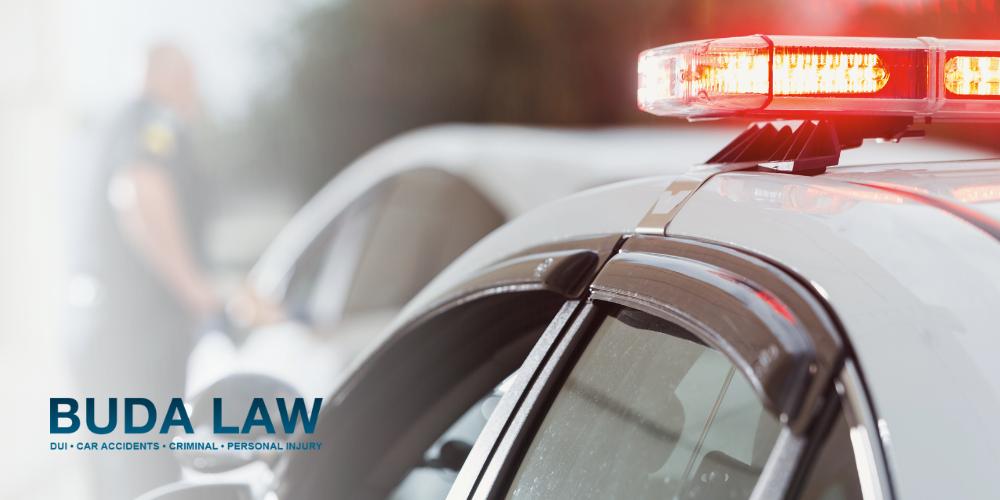
Potential Penalties for Juvenile Criminal Conviction
Juvenile criminals may face a wide range of legal consequences, whether they were adjudicated or not. The outcome of juvenile cases is largely dependent on the facts of the case and the criminal record of the juvenile accused of a crime.
If the legal proceedings adjudicate the juvenile, meaning that they were either found guilty or they plead guilty to the criminal offense, the court decides whether the juvenile criminal should be committed to a facility or if they should be put on probation.
If the court decides a juvenile should be committed, they will serve time in a residential facility for the amount of time the court decides they should serve. The Florida Department of Juvenile Justice will recommend a placement level for the juvenile criminal based on their offense and criminal history.
If the court decides they should not be committed, they may be placed on probation and be given an appropriate punishment for their crime. For example, the child or their parents may be ordered to pay restitution to any victims involved in the crime, or the child may be required to complete community service. They will be required to meet with their assigned juvenile probation officer and adhere to the guidelines set in place for them by the court.
If a juvenile is not adjudicated, they may still be placed on probation with certain restrictions and potentially receive penalties under Florida law. The court will issue penalties that are appropriate to the juvenile offense. This can include court-mandated participation in a counseling, rehabilitation, or diversion program.
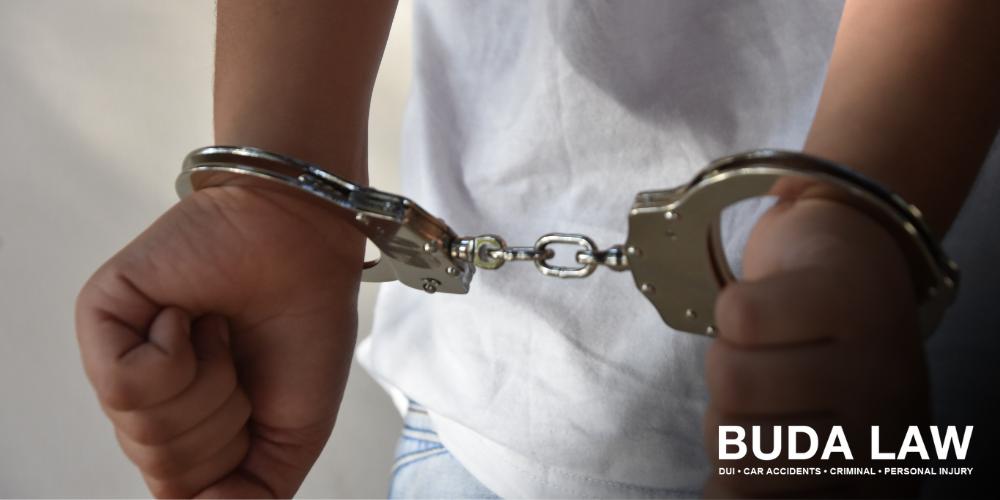
What To Do Following Your Child’s Arrest
If your child is facing criminal charges, there are steps that you should take to ensure your child receives the best possible outcome for their delinquent behavior. First and foremost, regardless of whether or not the juvenile committed a crime, you should advise them not to answer any questions the police may have. Anything they say can and will be used against them in their trial.
Additionally, if the child is not being held in a detention center before their court date, you should help ensure they appear in court for their detention hearing and/or trial. This can help prevent them from facing additional punishment.
You should also help them find an experienced criminal defense attorney to help defend them in court. A Tampa, FL, defense attorney that understands the inner workings of the juvenile justice system can be crucial to getting a favorable outcome. These outcomes could include securing informal case proceedings, which could only require the juvenile to participate in a diversion program and/or be put on probation. They could even have their case dropped entirely.
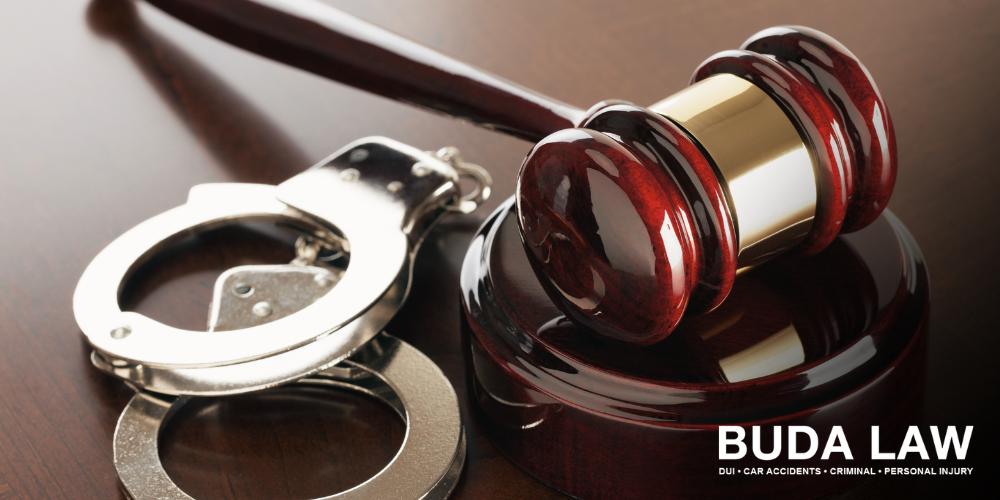
What Tampa Juvenile Defense Lawyer Andrew Buda Can Do For Your Child
With experience as an assistant state attorney and a sixth-grade teacher, Andrew Buda not only understands the Florida legal system, but he also understands how to provide counsel to children. Hiring him as your Tampa juvenile defense attorney can help your child receive the best possible outcome in relation to the circumstances. Schedule a free consultation with us by calling (813) 322-2832.
Florida Juvenile Justice System FAQs
The juvenile justice system can be confusing to navigate. Below, we’ll answer some of the questions you may be facing regarding juvenile offenses and legal proceedings in Florida. If you want to learn more, visit the Florida Department of Juvenile Justice website and review their resources for parents of children accused of a crime.
How is Juvenile Court Different From Adult Court?
When are Juveniles Tried as Adults?
How Long Do Juvenile Crimes Stay on Your Record?
The juvenile justice process aims to provide swift and fair judgment to minors who break the law and find fair punishments that fit the offense committed. The point is not to ruin a child’s life before it’s really begun. Florida law requires most juvenile criminal charges to be expunged at the age of 21, meaning the charges are removed from their criminal record once the juvenile is 21 years old.
There are some exceptions, however. If a juvenile is tried in adult court and found to be guilty, those charges may stay on their record after they turn 21. Additionally, if they are a habitual offender, they may be required to keep juvenile criminal charges on their record. Even if they were repeat offenders or committed a serious crime, a skilled juvenile defense attorney can help those accused of crimes petition for expungement and clear their criminal history.
What is a Juvenile Delinquent?
A delinquent act is described as any criminal act committed by a minor. However, minors who have been sentenced to adult court are not considered to be juvenile delinquents. If your child has committed a crime, call the juvenile defense attorneys at Buda Law today.
Can Parents Be Held Responsible for Their Child’s Crimes?
According to parental responsibility laws in Florida, the parents of a juvenile delinquent may be financially responsible for damages their child caused. These laws primarily focus on crimes related to driving and vandalism and are designed to ensure the victims of juvenile offenders receive fair compensation for the damages caused by the crime.
Parents and juveniles can be jointly responsible for any damages caused by negligent juvenile driving. Additionally, if a juvenile who is living with their parents commits vandalism or theft, their parents can be financially responsible for economic damages and court costs.
Don’t Wait – Call an Experienced Juvenile Defense Lawyer from Buda Law Today
If your child has been accused of a crime, you’ll need to hire an experienced attorney to help defend them and ensure they have the best chance at a favorable outcome. Buda Law can help you and your family navigate the Florida juvenile court system and fight to secure the minimum disposition possible, like participating in a diversion program rather than being committed to a detention facility.
Tampa juvenile defense attorney Andrew Buda is here to help represent you. Call (813) 322-2832 today and schedule a free consultation with us regarding your child’s case today.
CASE RESULTS
Get the Toughness of a Trial Attorney
START BUILDING YOUR CASE
Schedule a Free Consultation
WHAT MAKES OUR DEFENSE SO EFFECTIVE?
- Former State Prosecutor
- Highly Responsive & Accessible
- Result-Oriented Advocacy
- We Prepare Every Case as if it's Going to Trial
- Personal Representation Centered Around You
- Exceptional Negotiator
